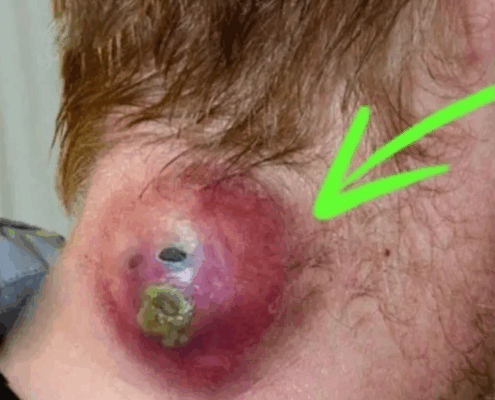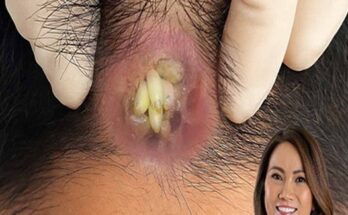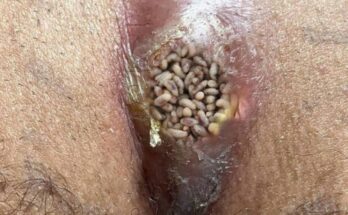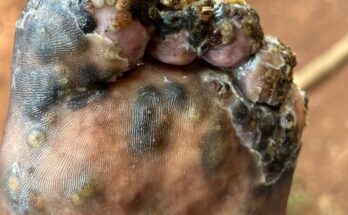The Abscess Swelled Up Near the Mouth: Causes, Symptoms, and Treatment
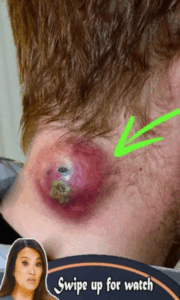
A swollen abscess near the mouth is often a sign of a dental or gum infection that has progressed beneath the surface. This painful condition, known medically as a dental abscess, occurs when bacteria invade the soft tissue of the mouth—either inside a tooth or around the gums—leading to a buildup of pus, inflammation, and pressure.
🦷 What Is a Dental Abscess?
A dental abscess is a pocket of pus caused by a bacterial infection. It can form:
- Inside the tooth (periapical abscess)
- In the gum tissue (periodontal abscess)
- Around a partially erupted tooth (pericoronal abscess)
The infection typically begins with tooth decay, gum disease, or trauma that allows bacteria to penetrate deep into the tissue.
⚠️ Symptoms of a Mouth Abscess
- Swelling near the mouth or jaw
- Throbbing pain that radiates to the ear or neck
- Redness and warmth in the affected area
- A visible lump or boil inside the mouth
- Bad breath or foul taste due to pus drainage
- Fever or general malaise in severe cases
In advanced stages, the swelling may distort facial features or interfere with eating and speaking.
🔍 How It Progresses
According to Jackson Ave Dental, abscesses develop in stages:
- Tooth decay breaches enamel and dentin
- Infection reaches the pulp, causing inflammation
- Pus accumulates, forming a parulis (gum boil)
- Facial swelling occurs as the infection spreads
- Airway compromise may happen in extreme cases
Prompt treatment is essential to prevent complications like bone erosion or systemic infection.
🩺 Treatment Options
- Drainage: The dentist will make a small incision to release pus and relieve pressure.
- Root canal: If the abscess is inside the tooth, the infected pulp is removed and the canal is sealed.
- Tooth extraction: Severely damaged teeth may need to be removed.
- Antibiotics: Prescribed to control bacterial spread, especially if swelling is extensive.
- Pain relief: Over-the-counter medications like ibuprofen help manage discomfort.
Never attempt to drain an abscess at home—it can worsen the infection or cause scarring.
🧼 Aftercare and Healing
- Rinse with warm salt water to keep the area clean
- Avoid chewing on the affected side
- Follow the full course of antibiotics
- Attend follow-up appointments to monitor healing
- Maintain good oral hygiene to prevent recurrence
🛡️ Prevention Tips
- Brush and floss daily
- Visit the dentist regularly for checkups
- Treat cavities and gum disease early
- Avoid sugary foods that promote bacterial growth
- Use antiseptic mouthwash if prone to infections
